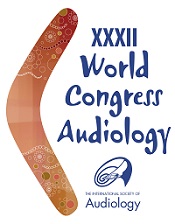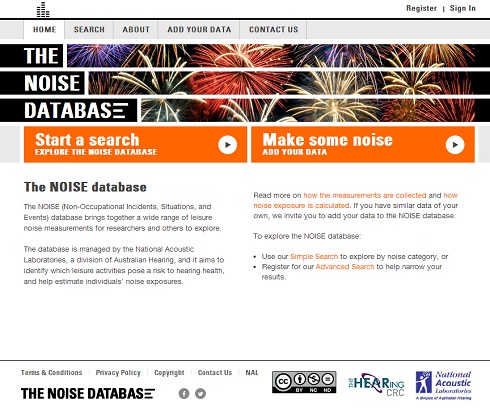 29 April 2014 - Australia’s noisy nightlife has got Australian researchers worried about the potential damage loud music is doing to the hearing of young people.
29 April 2014 - Australia’s noisy nightlife has got Australian researchers worried about the potential damage loud music is doing to the hearing of young people.
To get a better feel for how loud the music actually gets in some venues, researchers from the National Acoustic Laboratories (NAL) have been going out and recording some of Australia’s noisier recreational environments.
The results of their efforts have been uploaded to a new website known as the NOISE Database. On the new website, the information can be shared with other researchers, policy makers and other people interested in knowing more about the hearing health risks of recreational noise.
NAL researcher Dr Elizabeth Beach who is launching the NOISE Database at the XXXII World Congress of Audiology this week said the loudness measurements they recorded at various leisure activities have been significant.
“For example at nightclubs, we found the average noise level to be around 97 decibels (dB), so any patron who stays beyond 30 minutes is exceeding the legal workplace limit. That means someone who stays for four hours, as many patrons typically do, is being exposed to eight times the workplace limit,” Dr Beach said.

NOISE database webiste screen capture.
Other noisy activities recorded by the NAL researchers included motorsports and music festivals with average noise levels at 99 dB and 94 dB respectively.
These measurements show that young people who go to music festivals and nightclubs on a regular basis, such as once a weekend for several years, have a real risk of acquiring a hearing loss earlier in life.
“There are many things which can be done to reduce noise in clubs such as turning the volume down, preventing people being in close proximity to speakers and providing chill out areas where people can take a break. Unfortunately, many venues do not consider these options, with operators citing that patrons like their music loud,” Dr Beach explained.
“However, the tide may be changing. We've recently published some research that suggests many regular nightclub patrons would like noise levels to drop and a study just published in Britain has shown that 70% of students agree that noise levels in nightclubs should be limited to safe volumes.”
We hope our NOISE database will support venue patrons, policy makers, and the entertainment industry in their efforts to promote healthy hearing in leisure environments. By providing a one-stop-shop for leisure noise measurements that are reliable, up-to-date, and accurate, users can identify the leisure activities that pose a real risk to hearing health and start to make positive steps towards reducing noise exposure in these environments.
The NOISE Database website address is: noisedb.nal.gov.au
About the XXXII World Congress of Audiology host organisations
Audiology Australia: Australia’s largest member-based organisation representing professional audiologists and providing clinical certification and continuing professional development.
The HEARing CRC: An internationally unique consortium of research, clinical and industry organisations that undertakes clinical research and technological innovation to prevent and better manage hearing loss.
The International Society of Audiology: A member-based organisation that facilitates a greater understanding of audiology and the sharing of knowledge to protect and rehabilitate human hearing through its highly regarded publication The International Journal of Audiology.

